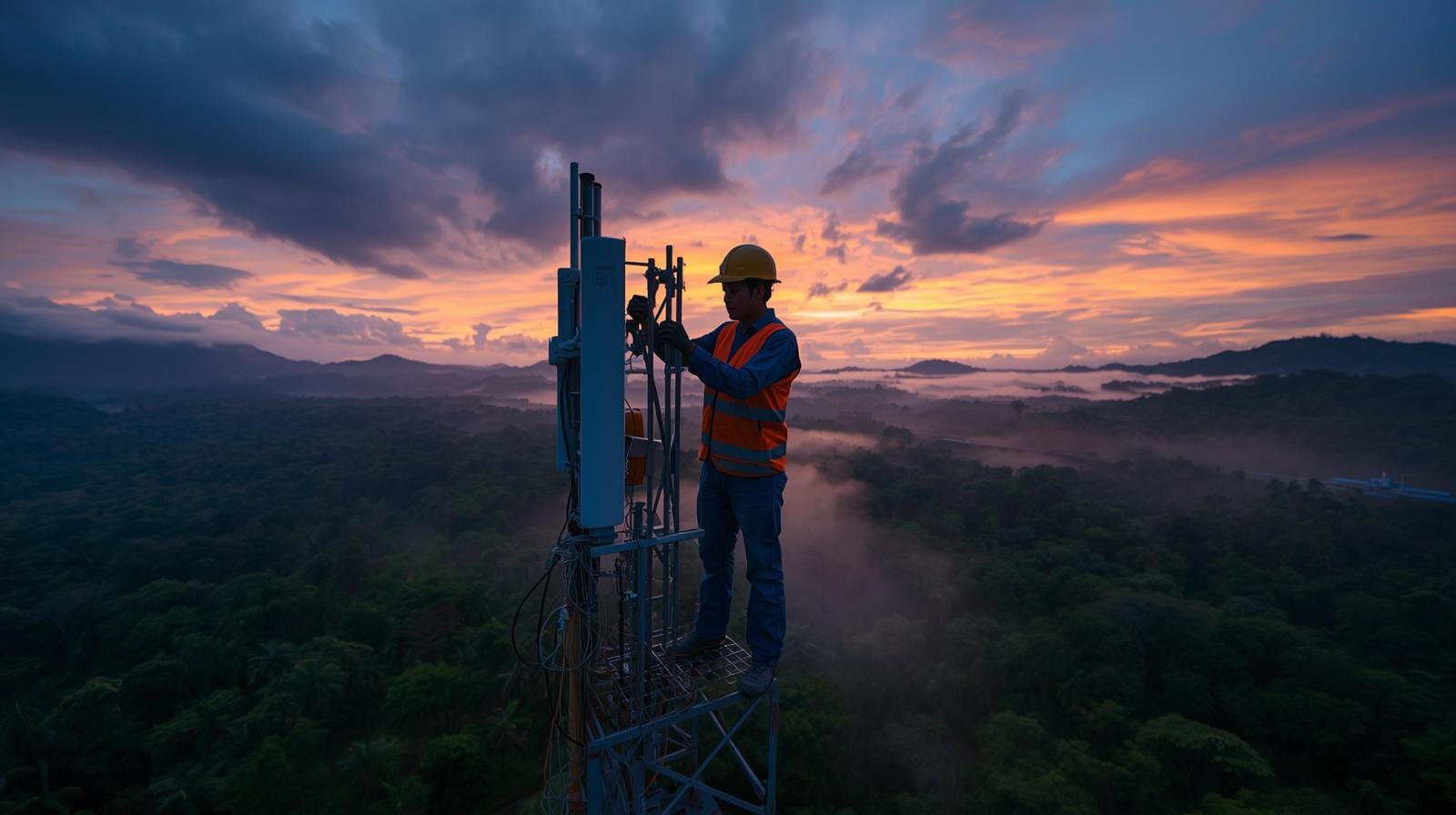Thailand’s largest mobile operator AIS is turning to artificial intelligence and 5G technology to keep networks running during emergencies and even to optimize everyday services. In late 2024, record monsoon floods threatened the northern city of Chiang Mai – but AIS’s AI‑driven network automatically rerouted signals and aided rescue efforts, unlike the days-long manual fixes of the past. At the same time, AIS has launched specialized 5G “BOOST”, “GAME” and “LIVE” modes (just ฿49 for 5 GB/3 hr) to give gamers and streamers lag-free connections. Behind both feats is a network intelligence platform built with Huawei: digital twins and real-time optimization enable lightning-fast self-repair and tailored performance.
“The CODC jointly developed by AIS and Huawei can optimize network resources in real time to ensure stable communications in emergencies,” says Wasit Wattanasap, AIS’s EVP – a system that kept tens of thousands connected through last year’s floods.
In practice, AIS’s network operated autonomously when Chiang Mai flooded: AI-powered agents detected out-of-service cells within a minute and remotely tweaked neighboring antennas to compensate. During the flood’s peak in October 2024, AIS and Huawei’s “Autonomous Networks” solution handled 182 cell outages and pushed 542 fixes in minutes, reducing data loss by 20% and keeping about 100,000 people online for critical rescue updates. (By contrast, pre-AI methods could leave cells down for ~24 hours.) AIS’s quick action contrasts with past disruptions: when a mid-2024 outage hit Bangkok and Chiang Mai, AIS apologized and offered customer compensation while its engineers scrambled to restore service. Now, the same AI layer that saved flood victims also assists everyday users.

Meanwhile, AIS is monetizing 5G with targeted connectivity packages. In 2023 it rolled out three “5G Mode” plans – BOOST for full HD streaming, GAME for ultra-low latency, and LIVE for uninterrupted social media video – each at just 49 baht for 3 hours. As AIS puts it, “5G GAME Mode comes with low latencies for a stable gameplay without lags or buffering”, covering major mobile titles like ROV, FIFA Mobile and Free Fire. These niche plans have been a hit: over 180,000 subscribers have signed up in the first year. The result is a boost to AIS’s bottom line: 5G add-ons have lifted average revenue per user (ARPU) by 1.5×. By leveraging its intelligent network, AIS can dynamically allocate capacity to gamers, streamers or videoconferencing – matching Thailand’s young, data-hungry audience.
“Instead of focusing on generic connectivity, the ‘5G Mode’ add-on leverages quality-of-service differentiation where network resources are allocated intelligently based on subscriber classes and application types,” industry analysts note.
The impact reaches beyond gamers. Thailand is courting digital nomads and visitors with new visa perks and data plans. For example, the Thailand Advisor recently noted that new remote‑worker visas now come with eSIM data bundles preloaded for travel convenience. “eSIM plans are an absolute game‑changer,” one report says, since they let foreigners skip airport SIM queues and stay connected nationwide. (Breeze eSIM offers Thailand bundles via QR code on any unlocked phone.) This matters because the regulators are tightening SIM rules: foreigners are now capped at 3 SIM cards per operator, and tourist SIMs expire in 60 days. In practice, many expats now even link their phone to corporate accounts or long-stay visas just to keep a number. The AIS network’s resilience thus underpins all of these new use-cases, from remote work to 5G‑enhanced tourism.

Looking ahead, AIS is formalizing this technology push into business strategy. The operator reports that automating network operations (with AI-driven fault detection and digital twins) has already cut traffic loss by ~80% and improved customer experience by 10%, even on a complex mix of 3G/4G/5G infrastructure. AIS’s CTO Kitti Ngarmchatetanarom says the goal is “Autonomous Network Level 4” – essentially a self-managing 5G network built on AI – to unlock new services. Last October AIS and partners launched a project to integrate foundation models and digital twins into radio access networks, seeking novel use-cases from retail to industry. All this builds on Thailand’s policy push: AIS already holds the largest share of Thailand’s 5G spectrum, and regulators estimate that widespread 5G could add $9.3 billion (10% of GDP) by 2035 In short, Thailand is betting that an AI‑powered 5G backbone will transform everything from emergency response to economic growth – and AIS wants to be the enabler.
Read next: Thailand Cracks Down on Scams: New SIM Card Limit and Banking Rules Affect Tourists and Expats – regulations like SIM caps and visa-linked banking are reshaping how foreigners stay connected in Thailand.
Meet Breeze — the easiest way to stay online in Thailand.
No plastic SIMs. No queues. Just instant data when you land.
Skip the airport SIM hunt. With Breeze eSIM, you’re connected the moment you arrive. Choose your plan, scan your QR, and enjoy fast data across Thailand — prepaid, secure, and hassle-free.
Travel smarter. Stay connected with Breeze.











